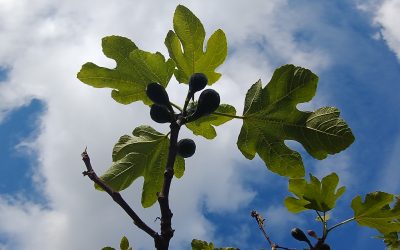 Our much-used copy of Claudia Roden’s ‘Book of Middle Eastern Food’ has finally fallen apart, and we’ve bought a new, updated copy. In its honour, Bob made some lovely pastries filled with spinach, aubergine and onion with various cheeses, and a tabouli bursting with home-grown parsley.
Our much-used copy of Claudia Roden’s ‘Book of Middle Eastern Food’ has finally fallen apart, and we’ve bought a new, updated copy. In its honour, Bob made some lovely pastries filled with spinach, aubergine and onion with various cheeses, and a tabouli bursting with home-grown parsley.
We talked about how our favourite cookery books combine cultural glimpses with helpful recipes. Claudia Roden’s book is a good example. You move smoothly from reading about bean soups made in pots on the roof-top, or the daily task of making yoghurt, or the doughs and shapes of pastries favoured by different communities, to discovering how to make these things yourself. As you cook, you feel you’re entering into the world described by the cookery writer. I lamented that this can’t really happen with books about music. Yes, you can describe concerts and so on, but you can’t end each section with a recipe for how to make a lovely piece of your own:
500g of assorted notes
125 grams of accidentals
100 grams of minims
200 grams each of crotchets and quavers
50 grams of dots
A sprinkling of triplets
A generous cupful of rests
Pick through the notes carefully, removing any double flats or sharps …




Of course there are a lot of treatises (and instruction manuals) on how to play, some of them very general (e.g., how to play the piano) and some more specific (e.g., how to perform certain ornaments in 18th C. music). In his “Versuch” (Essay on the True Art of Playing Keyboard Instruments) C.P.E. Bach did his best to offer precise, though still somewhat general, instructions. Fortunately (or not?) there were no recordings in those days, so he could not leave any aural instructions. I am of the opinion that at least some of the energy spent in debates on the interpretation of notes, e.g., how to play “double-dotted” notes, is largely wasted.
It would destroy music if precise recipes could be provided. (I believe that Susan agrees.) In that sense it’s just as well that notes do not do so. If we learned pieces not by struggling to interpret the notes, but by imitating a recording of the work, the results would not be desirable.
Susan, thanks for the great laugh!
And Beverly, I agree about imitating recordings. Never a good idea.
Gretchen
I wonder, would one use imperial pre-Schoenberg, and grams post?!